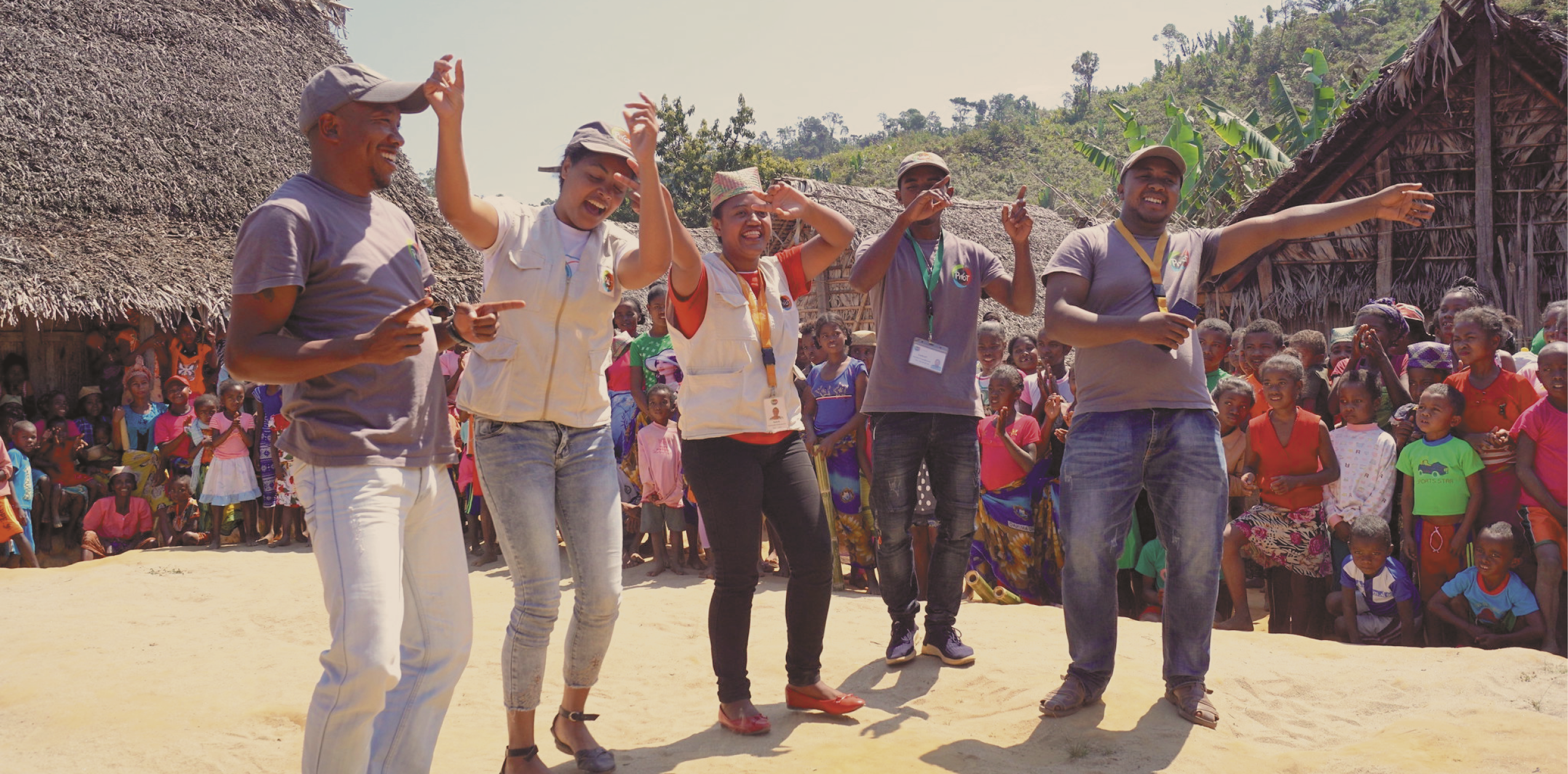22 Jul This is our moment.
Today is a date that is going to stick with me. Like my wedding anniversary or the birthdays of my two children – dates that one can’t anticipate but are forever held as significant – July 22nd, 2021 counts. It is the day that universal health coverage (UHC) officially and formally launched in Ifanadiana District, Madagascar.
For the 200,000 people of Ifanadiana District, for whom this means access to quality healthcare no matter what corner of the district they call home, it is life-saving. For the country of Madagascar, it is the day that the model we were invited to co-design with the government in 2019 becomes the north star for replication across the country. For the possibility that UHC in Madagascar holds as a model for the world, it is the day we collectively harness the lived experience of COVID-19 to say that we, a people deeply connected to one another on this planet, will not tolerate weak health systems for anyone, anywhere, anymore. In this year 2021, we have the science to make that possible and the will to see it done.
––––––––––––––––––––
For those who thought we were already “doing UHC,” we were, and we will continue. But making things official in Madagascar means everything. I learned that the first time I was invited to splash rum on the walls of a newly built health center, to welcome the ancestors to bless the place and bring good things for those who occupy it. Today’s celebration marks the formal signing and launch of all we have co-designed and iterated these last years.
For our founding staff, who now make up Pivot’s leadership team, and for our growing cadre of Malagasy board members, this means the chance the transform their own country’s health system into one that serves everyone, puts health equity at the center of everything, and has the promise to bring Madagascar to international prominence as a beacon of possibility. How honored I feel to serve alongside them, how much I have learned and continue to learn from them.
––––––––––––––––––––
For me, the journey to this day began twenty-two years ago when I stumbled into the epicenter of the HIV pandemic in Lesotho as a 22-year-old Peace Corps Volunteer. What I thought I had signed up for was a chance to see the world beyond my home in Lexington, Kentucky. What I got was a glimpse into a reality where language like “child-headed-household” and “OVCs” (orphans and vulnerable children) was becoming devastatingly commonplace. I remember thinking if people outside of here knew what was happening, could see these children burying their parents and turning to one another to survive, they would act.
In the coming years since bearing witness to the HIV tragedy, I have come to think of humanitarian action as more than just recognizing a need, but feeling agency to bring about change. For me, Pivot lights the path. Here we are saying, let’s take one place in the world – a special place, no doubt, but also one that represents much of the inequity that still prevails in the world today – and make it different, together. Let’s make rural Madagascar a place where women can expect to survive childbirth and children can expect to celebrate their 5th birthdays. By doing so, with local leadership at the helm and the government as our partner, we light a path for the rest of the country and the world.
––––––––––––––––––––
For those of you who have supported us along this seven-year journey, thank you for believing in us. Together as a community, we made this moment possible. And now, together, we have the opportunity to make this July 22nd matter forever by ensuring the full potential of UHC in Ifanadiana District and beyond.
Today I invite you to make a long term commitment to Pivot. Be it a multi-year pledge or a monthly gift, we’re looking to you for the kind of support that carries us through the coming years with the certainty we need to make decisions that have far-reaching potential. The goal at hand is to complete the full expansion of our model district by the end of 2022, to begin in replication districts in early 2023, and to have the model district plus replication efforts inform the national health planning cycle of 2024-2028.
Success will look like the government harnessing both domestic investment and international financing to fully realize a nationwide public health system that functions as well as it does in Ifanadiana District. That means paying every community health worker a living wage to take care of their neighbors as a full-time job, incentivizing nurses and doctors at rural health posts to stay the course despite the personal sacrifice, mapping footpaths to design healthcare that comes to the doorstep of the most rural homes, renovating health facilities to be dignified and well-equipped places for life-saving care, and partnering with those who take care of the forest to acknowledge that the health of people and place is deeply connected.
As Arundhati Roy so beautifully says “Another world is not only possible, she is on her way. On a quiet day, I can hear her breathing.” And on this day, July 22nd, 2021, I can too.
Yours in partnership and possibility,

Tara Loyd
Executive Director

